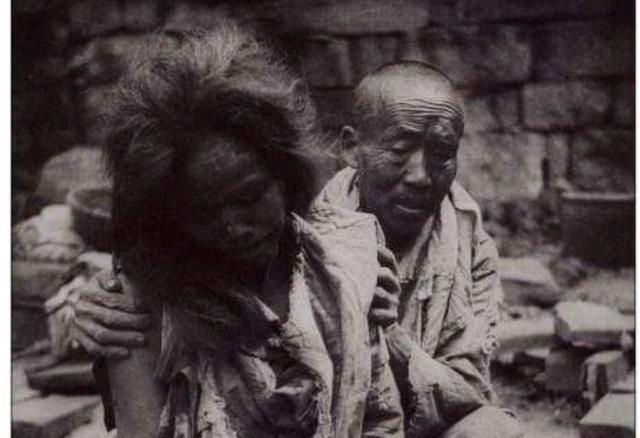In 1937, a year of many disasters for the Chinese nation, the iron hooves of the Japanese army went all the way south from Beijing to the ancient capital of Nanjing, plunging most of China into a fierce war.
On November 19, 1937, the Japanese army bloodied an ancient city in Jiangnan, burned and looted everything, and captured thousands of Chinese women to serve as sex slaves. According to the Miller's Review, the Massacre of the Japanese Army plummeted from 350,000 to less than 500, and the city was not Nanjing.

It turned out that the Japanese army had already created a massacre before the Nanjing Massacre, so what was this in that city?
In 1937, the Songhu War of Resistance ended with the fiasco of the Nationalist army, the Kuomintang army fled, and the Japanese army marched south to Nanjing, the seat of the Nationalist government.
However, on the way to Nanjing by the Japanese army, many Jiangnan cities were bloodied by the Japanese army, of which the city was the most miserable, which can be said to be the prelude to the "Nanjing Massacre", and this ancient city is Suzhou City.
According to the Nanjing Massacre: The Forgotten Holocaust of World War II, "Very few Chinese survived the Japanese army's journey to Nanjing. Japanese veterans recall raids on small villages, using sticks or bayonets and never sparing anyone they encountered. But it wasn't just small villages that were devastated, cities were also razed to the ground. ”
It can be seen from this that on the eve of the Japanese army's capture of Nanjing, there have been many massacres, and here the author believes that after the Japanese army won the Songhu War of Resistance, it was with the idea of revenge that the Japanese army invaded Nanjing, because the Songhu War of Resistance broke their wild words of "destroying China in three months", and at the same time ignored the determination of the Chinese people not to be willing to be slaves to the country and swore to resist to the death.
The Japanese army, which was inferior to the beast, wanted to use this method of slaughter to crush the resistance of the Chinese people. This was one of the main reasons why the Japanese army caused the Nanjing Massacre.
We continue to look down, in 1937, all the way to the bloody Japanese army came to the ancient city of Jiangnan - Suzhou.
On November 19, the Japanese army arrived in Suzhou, and they were shocked by the beautiful ancient garden city of Jiangnan, and began a terrible massacre.
The Japanese army launched a beastly campaign in the city of Suzhou, burning and looting the beautiful and rich city of Suzhou, and even set fire to some thousand-year-old cultural relics and monuments.
According to historical records: The Japanese army invaded Suzhou to kill people for pleasure, the streets and alleys, a sea of fire, the dragon guard street, the Xianghua Bridgehead, next to the North Temple Pagoda, as well as Qi, Xiang, Lou, Feng, Pan, Xu, Jin, And Zhang, the main gates, full of corpses, the city gates are full of human heads.
According to the Miller's Review, which was published by the Americans in Shanghai that year, after the Japanese army slaughtered Suzhou, the population of Suzhou plummeted from 350,000 to less than 500 people.
It can be seen that the Japanese army's bestiality in Suzhou has made the beautiful and rich city of Suzhou a fragmented and deserted city, and people have fled to the death, and in the end, the city of Noda has less than 500 people, which shows how terrible the Japanese army's massacre methods in Suzhou are.
The above is the massacre of the Japanese army in Suzhou in 1937, on the eve of the Nanjing Massacre, which shows that the Japanese army has committed numerous crimes on the eve of conquering Nanjing, and the Japanese army that entered the city of Nanjing has long become a demon that kills people without blinking, and the "Nanjing Massacre" tragedy that shocked the world was launched in the ancient capital of the Six Dynasties, Nanjing.
In view of the many bloody cases created by the Japanese army in various parts of Jiangnan in 1937, the purpose of which was to completely crush the determination of the Chinese military and people to resist the war and use this primitive and brutal means to play a deterrent role.
Here, the author believes that Japan ignores the Chinese nation's good and patient character, at the time of the destruction of the country and the death of the family, the Chinese that refuses to yield and the mountains and rivers that have been here are integrated, although the Japanese army has occupied a large part of China's national territory, but hundreds of millions of Chinese sons and daughters would rather die and stand up to resist, vowing not to be a slave to the country!
This spirit is the so-called true meaning of "the country is breaking the mountains and rivers"!